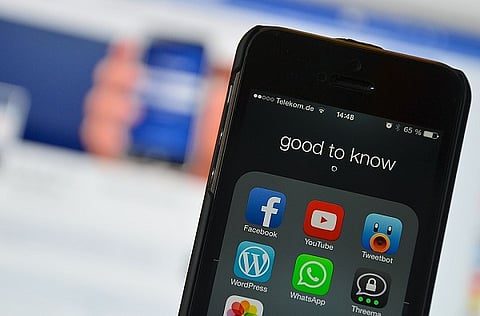

The Supreme Court's judgment declaring the Right to Privacy a fundamental right will have no direct impact on WhatsApp and Facebook, a cyber security expert said on Thursday.
"The reason for this is Facebook and WhatsApp are private entities. These private entities don't get covered under the ambit of fundamental rights as they are enforced under Part 3 of the Indian constitution and they are only enforceable to state action," Pavan Duggal, a Supreme Court advocate and cyber law expert, told IANS.
Earlier, the Delhi High Court had restrained WhatsApp from sharing with Facebook the user information existing upto September 25, 2016 when its new privacy policy came into effect.
"WhatsApp has to completely delete all data of users who chooses to opt out of the instant messaging app after the coming into force of its new privacy policy," the court had ruled.
The Supreme Court on Friday declared that right to privacy was a fundamental right and protected as an intrinsic part of life and personal liberty and freedoms guaranteed by the Constitution.
Rejecting the government's contention that privacy was not a fundamental right, a nine-judge Constitution bench unanimously overturned two earlier rulings in the M.P. Sharma and Kharak Singh cases that held that the right to privacy was not protected by the Constitution.
"That effectively means if the state violates the fundamental rights, you can challenge them in a court of law. A private person is not an instrumentality of the state," Duggal said.
According to him, the ramifications of this judgment on the digital and mobile eco-system will be "fascinating" to examine.
"Because in physical world, privacy is a well understood concept but privacy in the digital world is not defined," he said, adding that the government has to quickly wake up to the reality of the connection between privacy and cybersecurity.
WhatsApp had informed the High Court that when a user account was deleted, the information of that person was no longer retained on its servers.
IT and Law Minister Ravi Shankar Prasad said the government does not give the right to release data to anyone, except in case of compelling public interest.
"There are 118 crore mobile connections. There are 50 crore plus smartphones. India will be a global digital power and we can take good care of our cyber security and safety. I am very happy that all the big international companies are coming to India in a big way. There is Google, Facebook, WhatsApp... they are all welcome," the minister said.